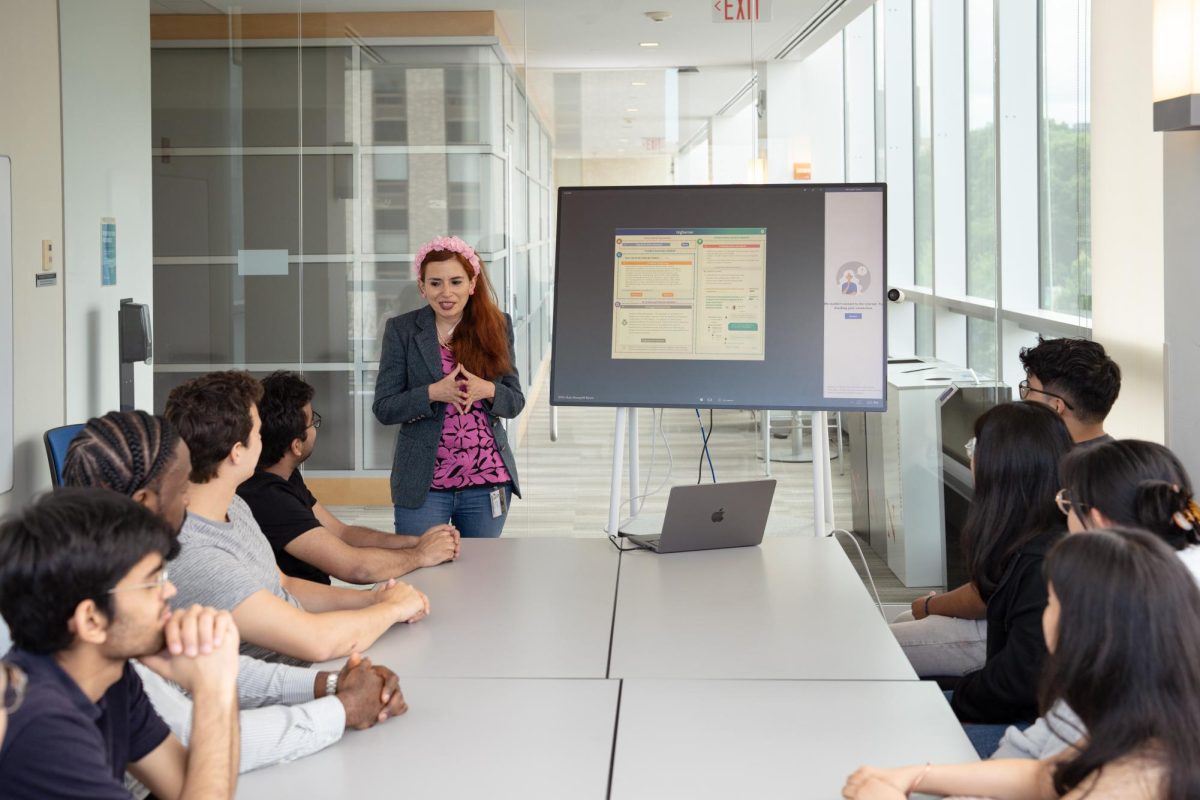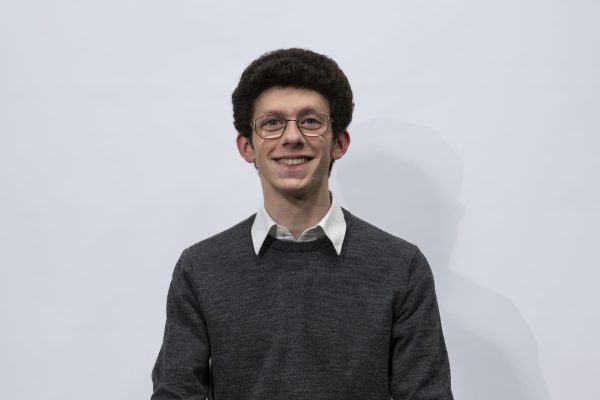Hardline immigration policy was a cornerstone of President Donald Trump’s 2016 campaign.
He vowed to “build the wall” on the US-Mexico border, halt immigration from Muslim-majority countries and crack down on sanctuary cities. In the 2024 race, he promised that, if elected, he would carry out mass deportations and reinstate his first-term border policies.
Now, he’s back and has begun delivering on those promises.
Within a week of taking office Jan. 20, Trump has signed multiple executive orders reshaping U.S. immigration policy and ordered nationwide immigration raids. As of April 16, NBC News — using data from the U.S. Immigration and Customs Enforcement, or ICE — has reported that around 47,928 migrants are in ICE detention.
Following a Jan. 20 executive order, ICE is no longer prohibited from entering spaces traditionally considered to be “sanctuary” locations, including schools, hospitals and churches. This order aimed to undo a long-standing precedent that restricted immigration officials from carrying out operations in such locations.
Immigration officials are also targeting international students who have participated in pro-Palestinian protests. On Jan. 29, Trump signed an executive order titled “Additional Measures to Combat Anti-Semitism,” saying the government would “prosecute, remove, or otherwise hold to account the perpetrators of unlawful anti-Semitic harassment and violence.”
As of April 21, the Trump administration has terminated more than 1,000 visas of students and recent graduates across approximately 40 states. The State Department has not specified reasons why a student may have their legal status terminated, but has publicly targeted students involved in activism or minor infractions like outstanding parking tickets.
Northeastern’s “Navigating a New Political Landscape” FAQ page states that the university has “no evidence” visas were terminated from its affiliates due to political advocacy or speech. Now, many Northeastern international students have been left with more questions than answers.
The Huntington News spoke with three first-generation Northeastern students about what it’s like to navigate college during Trump’s second term in office. They discussed their concerns, fears and experiences during this daunting period as they prepare for the next four years.
Tombis Perez, a first-year mechanical engineering and design combined major, is the son of immigrant parents, both from the Dominican Republic. Perez is a co-leader of PODER, a program for first-generation Latinx students, aimed at providing them with support and resources as they transition into college.
Student 2, a first-year, is the daughter of immigrant parents from Morocco and Palestine and was granted anonymity by The News due to concerns over her and her family’s safety.
Student 3 was granted anonymity by The News due to fear of retaliation from the federal government over their family’s immigration status.
This conversation has been edited for length and clarity. Each interview was conducted separately.
The Huntington News: Trump has been in office for a few months now. What have been your first reactions or thoughts so far, and how have the recent executive orders and immigration policies affected you or your family’s daily life?
Tombis Perez: I think if you could sum it up in a word, [it would be] “madness.” It’s kind of crazy how, in just a month, how much things have changed and how things are constantly changing. He’s come in with a different perspective, very dictator-like.
Student 2: I feel like every day there’s a new thing to be stressed out about. I’ll call my mom and I’m like, “Did you see the news? He just signed an executive order for this; he just signed an executive order for that.” It’s not like my whole family is here documented. We have to worry about how my uncle is going to deal with all these new things, how ICE is coming in.
It doesn’t seem like Maura Healy is stopping [the Trump administration] completely. I saw something saying that she doesn’t want Massachusetts to be a sanctuary state, which is really scary. For the longest time the conversation was always, “Oh, we’re in Massachusetts, so we should be fine.” The fact that the governor is saying something like that was pretty stressful.
And then every executive order just feels like another blow or another hit. And it’s another thing that we have to consider. Even my friends have to worry about their immigration status so much more, even though they’ve grown up here their whole lives. It’s not something that they should have to worry about.
Student 3: I feel like the Department of Education specifically, like, there’s all this talk about the [Free Application For Student Aid, or FAFSA], and I don’t know if I can afford college without the FAFSA. And all the talk surrounding DEI and anti-discrimination laws. I don’t know how to work my way around college, neither do my parents. And also, the fact that I’m ethnic and like a child of immigrants from a brown community, an Arab community.
HN: Do you feel supported by your community at Northeastern? If not, what would that look like for you? What are your thoughts on how this situation is being handled in the community?
Perez: [Within] my community of the Latinx Student Cultural Center, for sure. Especially the advisers, the staff, they’re working with us closely to make sure we’re doing everything that we can and [that what] we’re doing [is done] correctly without having anything crazy go wrong. But in terms of the greater community of actual faculties in Northeastern, I think just how quickly they [removed] the [diversity, equity and inclusion, or DEI] page, it shows that they’re willing to change on the fly … [With] how quickly things can change and how our smaller communities like the Latinx group [are, we] have to band together.
Student 2: From my circle, everyone’s supportive, everyone understands that trying to get rid of every single immigrant … is not practical. It doesn’t make sense. It’s a very extreme way to handle politics. And it’s, quite frankly, pretty scary to see how fast everything is moving. And I feel like I’ve been fortunate enough to build a community around myself that understands that and also is able to give each other grace. I think that’s really important right now, understanding that this is a stressful time and that everyone is going to be handling it in a different way. I feel like I’ve built a good community for that.
But in terms of Northeastern, seeing them cave to things like getting rid of the DEI office or not really standing behind their student body — it’s embarrassing. It’s embarrassing to see that our school isn’t really fighting for what their students believe in.
Student 3: I haven’t worried about it that often here at Northeastern. I feel like Boston’s pretty liberal. It’s not on my mind day to day. It doesn’t feel as real here as it does at home in Philadelphia, which is pretty liberal, but I live in the suburbs, which can get pretty Republican and Trump-centered. I wouldn’t say I feel supported, but I wouldn’t say I feel unsupported. My friends are very supportive, a lot of them are immigrants, too, or know a lot of immigrants.
HN: Is there a message you’d like to spread awareness about?
Student 2: I think in general the basis of being an immigrant is that you can’t just assume that they’re here to take everything. They are really trying to just make a better life. And it feels crazy to have to say that because I feel like that was what we were taught. That immigrants came here for a better life, and now it’s like, “No, immigrants are here to take everything.” I just feel like we lost the plot. We aren’t teaching ourselves on what it means to be an immigrant in the context that often comes with being an immigrant. We’ve taken this step backwards when it seems kind of counterintuitive for the immigration policy.
I think it has a lot to do with conservative rhetoric. As things become more expensive, we’re also seeing a lot more immigrants in the country, and people have made an association between the two. That because there’s more immigrants, it’s harder to find a job, it’s harder to make money and it’s harder to keep up with inflation. Even though both things are going up at the same time, that doesn’t mean that. It’s much deeper and more complex than just assigning it as a group problem, like one group’s problem.
HN: How have the recent executive orders and immigration policies affected you or your family’s daily life?
Student 3: We have a lot of people we know that are either on green cards or are processing their immigration status. We worry about them all the time. Recently, we [my family and I] went to this restaurant that we regularly go to, and they detained the two owners of it. They were here legally. They just were waiting for their confirmation of status, and they were supposed to stay here.
I’m pretty sure they detained them recently, but we saw this huge outpour of people supporting them. And within two weeks they got out because so many people were supporting them. But there’s a lot of people in the system that don’t have all the support, and we worry for the people around us a lot.












